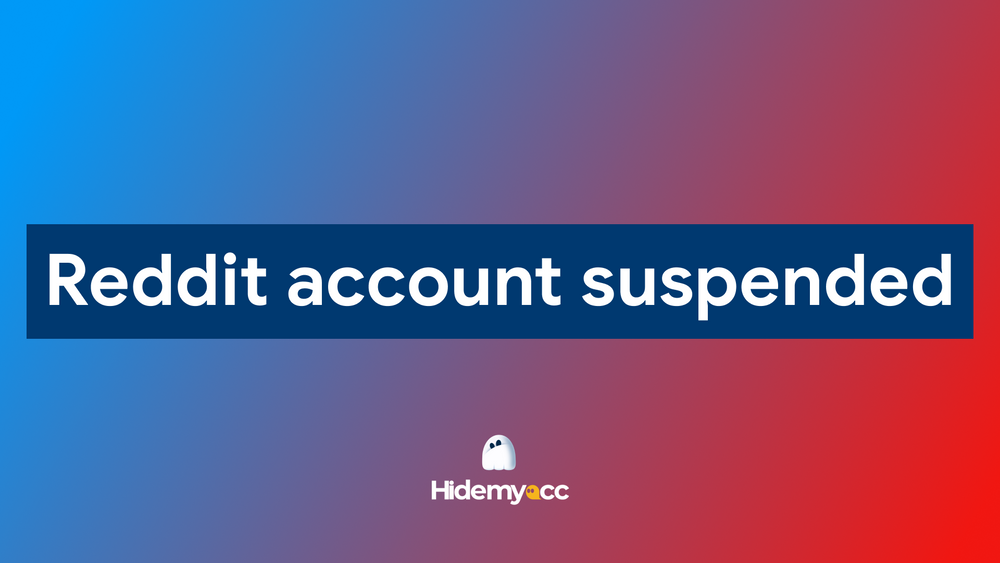Have you ever tried really hard to get tickets for a big concert, a huge sports final, or a popular event, only for them to sell out in seconds? Then, moments later, you see those same tickets pop up on other websites for ridiculously high prices. This frustrating feeling often comes from ticket scalping, a practice that has changed a lot with the internet.
This article will explain what ticket scalping is, how it works, if it's legal, and share some famous examples. We'll also look at all the different effects of ticket scalping—the clear downsides for fans and artists, but also some surprising, and sometimes debated, "benefits" that people don't often talk about. If you've ever felt annoyed missing an event or wondered how some people always get tickets, keep reading.
1. What is ticket scalping? A closer look at the practice
At its heart, ticket scalping means buying tickets for an event, like a concert, a sports game, a play, or a big convention, just to sell them again for more than their original price. The main goal is to make money by taking advantage of high demand and limited tickets.
It’s important to see the difference between ticket scalping and regular resale. A normal resale might happen if a fan bought a ticket but can't go anymore and sells it for the same price or close to it. Ticket scalping, though, is a planned business where people purposely use the fact that popular events sell out fast to make a profit.
Even though "scalping" sounds like a new problem, reselling tickets for profit has been around for hundreds of years, even before the internet. Back then, people might stand outside venues, buying extra tickets and selling them for a bit more. But with the internet and smart technology, ticket scalping has changed from a small street hustle into a huge business worth millions. Today, professional ticket scalpers and automated programs called bots can buy hundreds, or even thousands, of tickets in a flash. This completely overpowers the usual ways tickets are sold. This has made modern ticket scalpers much tougher, and often unseen, opponents for the average fan.
2. How does ticket scalping work? The methods behind the markups
The way events instantly sell out and then thousands of tickets appear on resale sites at crazy prices isn't magic. It's a very organized, tech-driven operation. To understand how ticket scalping works, you need to know about the key moments of ticket sales and the tools used to take advantage of them.
2.1. The "gold rush" moment: Initial ticket sale
Every highly anticipated event has its "gold rush" moment—the exact time tickets go on sale. For real fans, this is often a crazy, frustrating rush. Websites crash, waiting lines are endless, and within minutes, or even seconds, the desired "Sold Out" sign appears. This instant sell-out is often the first sign that professional ticket scalping groups are at work.
2.2. Botting: The main weapon in ticket scalping
The most important tool in modern ticket scalping is the bot. These aren't just simple computer programs; they are smart, automated software designed to act like a human online but work at a speed and scale no person ever could.
- What are bots? A ticket bot can skip online waiting lines, quickly solve those "I'm not a robot" puzzles (CAPTCHAs), fill in payment info, and finish many purchases much faster than any human user. While you're slowly typing in your credit card details, a bot has already finished hundreds of transactions.
- How bots avoid being caught: To stop ticketing websites from blocking them, ticket bots use many clever tricks. They use IP rotation, which means constantly changing internet addresses to look like many different users. They use proxy servers to hide where they really are. Smart bots can even copy how real web browsers look and act, making them incredibly hard for security systems to spot. This is where tools like Hidemyacc, which help manage browser fingerprints for real reasons, could be misused, even though their main purpose is for safe and private Browse, not for harmful automatic buying.
- Multiple accounts: Besides being fast, bots help create and manage many user accounts. A single ticket scalper or scalping group can use hundreds, even thousands, of different accounts to buy large groups of tickets all at once, taking up even more of the tickets available from the original seller.
2.3. Payment processing and resale platforms
Once the tickets are bought, the next step in the ticket scalping process is to list them on the secondary market.
- Quick payment handling: Professional scalping groups often have systems to manage the large number of payments needed to buy so many tickets at once, often using many different credit cards or payment services.
- Big resale platforms: The bought tickets are then listed on major secondary market websites like StubHub, SeatGeek, Viagogo, or even Ticketmaster's own verified resale sites. These platforms, while offering a service, also create a marketplace where ticket scalpers can do well.
- Changing prices (dynamic pricing): These resale platforms use pricing methods where the ticket price isn't fixed. It constantly changes based on how much demand there is, how many tickets are left, and even how close it is to the event date. This lets ticket scalpers make the most money, sometimes seeing prices jump to many times the original cost as the event gets closer.
- "All-in" pricing vs. hidden fees: While some platforms now show "all-in" prices, many still list a base price and then add big service and delivery fees, making the final cost even higher for the buyer.
When you combine bots, quick re-listing, and changing prices, it means real fans aren't just fighting other fans for tickets. They're often outsmarted by professional ticket scalpers using advanced technology. This creates a "trickle-down" effect, pushing even well-meaning fans who missed the first sale towards the highly inflated secondary market.
3. Is ticket scalping legal? A complex mix of laws
Whether ticket scalping is legal is not a simple question. There isn't one universal law, and rules change a lot depending on where you are, like a specific country, state, or even a city. What's perfectly legal in one place might be against the law in another.
3.1. Different legal rules
- "Above face value" limits: Many places have laws that specifically ban selling tickets for more than their original price. These laws are often meant to protect buyers from being charged too much. But it can be hard to enforce them, especially with online sales that cross borders.
- Venue rules: Besides government laws, many event places and organizers have their own rules that clearly forbid reselling tickets for profit at their location or through unofficial channels. Breaking these rules can lead to tickets being canceled.
- Anti-bot laws: Because of the growing problem of automated purchases, several governments have passed laws specifically targeting the use of bots for buying many tickets. A well-known example is the Better Online Ticket Sales (BOTS) Act of 2016 in the United States. This law makes it illegal to use bot software to get around security on ticket seller websites and bans reselling tickets bought this way. Similar laws exist or are being thought about in other countries like the UK, Australia, and Canada.
- Consumer protection laws: Broader consumer protection laws can also apply, dealing with issues like misleading prices, not delivering tickets, or selling fake tickets. These laws aim to protect buyers from dishonest practices in the secondary market.
3.2. Challenges in enforcing laws and "gray areas"
Even with these laws, enforcing them is still a big challenge. Because the internet is global, ticket scalpers can operate from almost anywhere, making it hard for local police to catch them. Also, things can get unclear when a large, legitimate secondary ticketing website helps sell tickets, even if some of those tickets were first bought by scalpers.
There are also "gray areas." For example, while using a bot to buy tickets might be illegal, simply reselling a ticket for a higher price (without using a bot) might not be, depending on local laws. This complicated legal situation creates a landscape that ticket scalpers often use to their advantage, finding loopholes and working in places with weaker rules.
4. Infamous examples of ticket scalping
The impact of ticket scalping is best seen through the many high-profile events where fans ended up frustrated and paying too much. These examples show how big the problem is and how it affects people.
4.1. Music concerts
- Taylor Swift's "Eras Tour": This tour became a major and widely talked about, example of ticket scalping in action. The first sale saw incredibly high demand, leading to website crashes and huge bot activity. Tickets that originally cost a few hundred dollars were soon listed on secondary markets for thousands, with some top seats going for tens of thousands of dollars. The sheer number of scalped tickets and the anger from the public even led to discussions in the US government.
- Adele and BTS Concerts: Other global stars like Adele and K-pop group BTS have consistently seen their tours sell out in minutes, only for thousands of tickets to flood resale sites at crazy prices. This shows how ticket scalping takes advantage of how popular these artists are.
4.2. Sports events
- Super Bowl, NBA Finals, World Series: Big championship sports events are always targets for ticket scalpers. The limited tickets combined with passionate fans push prices sky-high on the secondary market. A single Super Bowl ticket can easily sell for thousands of dollars, much more than its original price.
- Olympic Games: Tickets for highly anticipated events at the Olympics are also a hot item for ticket scalpers. Despite efforts to control the market, the worldwide demand creates a profitable chance for those looking to make money.
4.3. Popular conventions and expos
- San Diego Comic-Con International (SDCC), South by Southwest (SXSW): These cultural events attract hundreds of thousands of people, often with limited entry passes. This scarcity creates a good environment for scalpers who buy passes and then sell them for big markups, sometimes bundled with exclusive items or hotel bookings. While not always "tickets" in the usual sense, the idea of profiting from inflated demand is the same.
These examples clearly show that ticket scalping isn't just a one-off thing; it's a constant problem affecting the biggest and most popular events in entertainment, sports, and culture.
5. The consequences: Ripple effects of ticket scalping
The effects of ticket scalping are far-reaching, impacting not just individual fans but also artists, venues, and the whole entertainment industry. While mostly negative, it's also good to briefly mention some debated "benefits" that economists sometimes point out.
5.1. Negative consequences
For fans:
- Being left out and unfairness: The most immediate and painful effect is that real fans are often priced out or simply can't compete with the speed of bots. This makes things feel very unfair, as those who are most passionate about an artist or team are the ones who miss out.
- Financial burden: Fans who really want to go are forced to pay huge amounts, sometimes hundreds or thousands of dollars above the original price, just to see their favorite act or team. This can make events that used to be affordable a luxury only for the rich.
- Disappointment and frustration: The emotional toll of being outsmarted by bots, seeing tickets disappear, and then reappear at crazy prices is big. It spoils the whole experience, from the excitement of buying tickets to the event itself.
- Risk of fraud: The secondary market, especially unofficial websites or individual sellers, has a high risk of fraud. Fans might end up with fake tickets, duplicate tickets, or tickets that don't work, losing their money and missing the event completely.
For artists, teams, and venues:
- Harm to fan relationships: When fans feel ripped off by ticket prices, that frustration often turns into negative feelings towards the artist or team, even if they aren't directly responsible for the resale prices. It breaks down trust and good feelings.
- Loss of income: Ticket scalpers take a big part of the money that could otherwise go to the artists, performers, teams, and venues who create and host the events. This money could be used to make future shows better, improve fan experiences, or pay staff fairly.
- Empty seats: Sometimes, prices on the secondary market become so incredibly high that even scalpers can't sell all their tickets. This can lead to the strange situation where highly desired events have visible empty seats, which is sad for everyone involved.
- Security concerns: When tickets change hands many times, it becomes harder for venues to know who is really attending, which could make security and emergency plans more complicated.
For the industry:
- Distortion of market value: Ticket scalping artificially boosts demand and twists the real market value of events. This makes it hard for original ticket sellers and artists to set fair initial prices.
- An "arms race" against bots: The industry is stuck in a never-ending, costly "arms race" against smarter and smarter bot technology. Money that could be spent on making the fan experience better is instead used for cybersecurity.
5.2. Surprising (and controversial) benefits
While the negative impacts are clear, some economists and market experts argue that ticket scalping can have a few, though debated, "benefits."
- Price discovery: From a purely economic point of view, ticket scalping helps the market find the "real" price for a ticket. If tickets are priced too low at first for a very popular event, scalpers fill that gap, showing what people are truly willing to pay. This can help set future prices, though it often makes it harder for everyone to get tickets.
- Access for some: For those with a lot of extra money, the secondary market, boosted by scalpers, offers a guaranteed way to get into events that are otherwise sold out or seem impossible to get tickets for. While this only helps a small group of people, it does provide a way to attend.
- Income for "entrepreneurs": From a pure business view, ticket scalping is a type of entrepreneurship. Individuals or groups find a gap in the market (tickets priced too low for high-demand events) and make money from it. While this is ethically questionable, it does create income for those involved.
- Increased event popularity (debatable): Oddly, extremely high resale prices can sometimes make an event seem even more exclusive and desirable. If tickets are selling for 10 times their original price, it can make the event seem even more "must-see," possibly increasing its long-term appeal, though this is a very small silver lining.
- Market efficiency (for those who prioritize it): For some strict economists, ticket scalping is simply moving goods to those who value them most (meaning, are willing to pay the most). This view mostly ignores the ethical and accessibility issues for the average fan.
It's important to look at these "benefits" carefully, as they mainly focus on economic efficiency and often miss the deep social and ethical impacts on fans and the wider entertainment world.
6. Mitigating ticket scalping: What's being done?
The fight against ticket scalping is still going on, with event organizers, ticketing websites, and governments constantly coming up with new ways to tackle the problem.
6.1. Technology solutions
- Better bot detection: Ticketing platforms are spending a lot of money on advanced AI and machine learning programs to spot and block automated purchases as they happen. These systems look at how users act, their internet addresses, and buying patterns to tell humans from bots.
- Digital tickets and NFT tickets: There's a growing move towards tickets that are only digital, often linked to specific mobile phones or accounts. More cleverly, some events are trying out NFT (Non-Fungible Token) tickets. These can have rules built into the ticket itself, limiting resale prices, saying who can resell them, or even letting artists earn a small fee from secondary sales. This makes it much harder for scalpers to move large numbers of tickets that can't be tracked.
- Fan verification programs: Programs like Ticketmaster's "Verified Fan" ask potential buyers to register and prove who they are before tickets go on sale. This helps filter out bots and known scalpers, theoretically giving real fans a better chance.
6.2. Legal actions
- Stronger anti-bot laws: As mentioned, more countries are passing and enforcing laws specifically against using automated software for buying many tickets, with tougher penalties for those who break the law.
- Resale limits: Some areas or event organizers are putting in place laws or rules that cap resale prices (e.g., at the original price plus a small service fee) or demand that tickets can only be resold through official, verified channels.
6.3. Venue and artist strategies
- Official fan-to-fan resale platforms: Many artists and venues are creating or partnering with official platforms that allow fans to resell tickets to other fans at face value or with a controlled markup, thereby cutting out third-party scalpers.
- Dynamic pricing at the source: Some artists and promoters are using more aggressive flexible pricing strategies for initial sales, setting prices closer to what the market will bear. The idea is to capture more of the potential income upfront, supposedly leaving less profit for scalpers. However, this can be debated, as it might mean higher initial prices for fans.
- Paperless ticketing and ID checks: For certain events, tickets are directly linked to the credit card used for buying them or require an ID check at the venue entrance, making it much harder for scalpers to transfer tickets.
6.4. The role of ethical browser tools
It's important to tell the difference between tools made for normal, fair Browse and those used for harmful botting. Tools like Hidemyacc, which help manage browser fingerprints for real reasons (like keeping privacy across different accounts for work or personal use, or getting access to content that's usually blocked in certain regions fairly), are not meant for ticket scalping. They let users control their digital identity, which can be helpful for those who want to use the internet safely and privately. The misuse of such powerful tools by ticket scalpers shows the constant challenge of making sure technology is used for good, not for unfair advantage.
7. Conclusion: Finding a balance in the ticket market
Ticket scalping is still a tough and ongoing problem in the world of live events. We've looked at what it is, the smart ways scalpers work (especially with bots), the different legal rules, and the big effects it has on passionate fans and the entertainment industry. While the negative impacts—being left out, costing too much, and losing trust—are clear, the economic arguments for its "benefits" remind us that this isn't a simple right-or-wrong issue.
The ongoing battle against unfair ticket scalping shows how technology and human cleverness are always changing. As scalpers find new ways to use loopholes, event organizers and tech experts are working hard to build stronger defenses and create fairer systems.
Ultimately, the goal is to create a ticket market that's easy to access, clear, and fair for everyone. Can a truly equal system ever be achieved? That remains a big question for the industry and for fans. As a buyer, knowing how ticket scalping works and understanding what's being done to fight it can help you make smarter choices and protect yourself when trying to get that desired ticket. Let's hope that one day, every fan gets a fair chance to see their favorite artists and teams without fighting an army of bots.
8. FAQ
Question 1: Is ticket scalping illegal in Australia?
Ticket scalping is illegal in some Australian states, but laws vary depending on the region.
Question 2: Why are they called scalpers?
The term "scalper" originated in the 19th century, referring to those who sold tickets at inflated prices, much like scalp hunters.
Question 3: How to prevent scalping of tickets?
Implementing ticket limits, using personalized tickets, and introducing resale platforms with regulations can help prevent scalping.
Question 4: What is the difference between scalping and reselling?
Scalping involves selling tickets at inflated prices, while reselling is the act of transferring a ticket to someone else at a fair or legal price.
Question 5: Is scalping scamming?
Scalping may not always be classified as scamming, but it is unethical and illegal in many areas due to the price manipulation involved.






